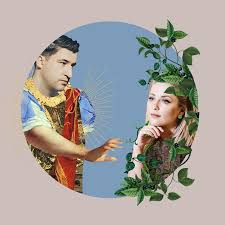Living where we do, there's one thing that I've not been introduced to in my lifetime. And, that is the opera. I know virtually nothing about it, except what I've seen in the movies.....the opera house, the voices, the music and the elegant clothing. If I would have the opportunity to attend an opera, I wouldn't know how to maximize the experience, other than sit there, look and listen.
My hope is that my readers will also enjoy this kindergarten class about the opera.
- Opera comes from the Latin opera, which is the plural form of opus, or work.
- The written dramatic text is expressed in the form of a libretto, the major liturgical words.
- The opera is a multidisciplinary genre that brings together the artistic disciplines of music, singing, dance, theater, staging, performance, costumes, makeup, hairdressing and others. It's a collective creation of these art forms.
- An opera begins with the composer and librettist (the one who writes the text), the vocal performers play a powerful role, as do the musicians and their conductor, the dancers, those who created the stage sets, costumes and the other aspects of the dramatic arts.
- The opera is a social event. Over time, the opera has become a reflection of the currents of thought, political and philosophical, religious and moral, the beauty and culture of the society where the plays were produced.
- DAFNE, composed by Jacopo Peri, is considered the first opera which premiered in Florence, Italy, in 1598. That's where the opera was born.
- The story focuses on the love story between the god Apollo and the nymph Dafne. Dafne means laurel tree. In Greek mythology Dafne was the name of the nymph who was transformed into a laurel tree to escape the pursuit of Apollo. The laurel tree is a symbol of victory, honor and recognition.
- Knowing the story of an opera before attending greatly enhances one's enjoyment and understanding. An opera is a play that is told through music, and understanding the plot allows one to appreciate the musical storytelling.
- Not understanding what the opera play is about can make one struggle to understand who's singing what, why and what's happening on the stage. Knowing the plot allows a person to connect the music to the plot and appreciate its significance.
- Besides understanding the story, there's also the beauty of the performance to appreciate, as well as the artistry of the singers and the overall dramatic impact of the opera.
- How can one prepare to go to an opera?
- Many websites offer plot summaries.
- YouTube offers clips of opera performances, allowing one to see the staging and costumes.
- What about the language barriers? How does a person know what the singers are singing? As I come to understand, some of the most beautiful music ever written is in operas, and one doesn't need to know the words being sung. It's enough to simply savor the music.
- Nowadays, as I understand, opera houses provide captioning above or beside the stage. So, if one doesn't speak the language the opera is being presented in, one can have a pretty fair idea of what's going on.
- The opera is an emotional experience conveying emotion through music, singing and performance. One can grasp the feelings and themes without understanding the words.
- The opera is visual storytelling. The staging, the costumes and the acting all play significant roles in telling the story. The visual elements help enhance the understanding and enjoyment of the performance.
- The opera is about appreciating music. The opera features a wide range of musical styles, offering a listening experience that transcends language.
- Engaging with opera can provide cultural and historical insight, enriching one's overall knowledge.
- What are the main themes of the art of opera?
- Love and Passion. Romantic relationships, love that is not returned, and the complexities of desire.
- Death and Tragedy. Themes of man's mortality, loss and the tragic consequences of human actions.
- Fate and Destiny. Man's struggle against fate and the impact of destiny on characters' lives.
- Jealousy and Betrayal. Conflicts arising from jealousy, betrayal and revenge.
- Power and Betrayal. Political intrigue, ambition and the quest for power.
- Redemption and Forgiveness. Spiritual rescue, moral dilemmas and the possibility of forgiveness.
- Identity and Transformation. Characters grapple with their identities, that eventually lead to transformation and self-discovery.
- Social Class and Inequality. Many operas touch on social issues and the struggles of the marginalized.
- Opera is said to be Life Amplified--human characteristics, fears, joys, relationships, laughter, sorrow, passion---AMPLIFIED.
- In an opera, the music tells the story. Not the words.
- The artistry involved in elaborate staging and lighting create a captivating visual experience. The artistry can be as engaging as the music itself.
- The singers and actors, their physical expressions and movements contribute to the storytelling, making it accessible even without understanding the dialogue.
- Even if we don't understand Italian or the specific plot, the opera's emotional depth, visual beauty and cultural richness can be a rewarding experience.
- Just as a baby enjoys the familiar voice of its mother, but can't understand the words she is saying, opera lovers feel and behold a loving communication between themselves and the artists.



